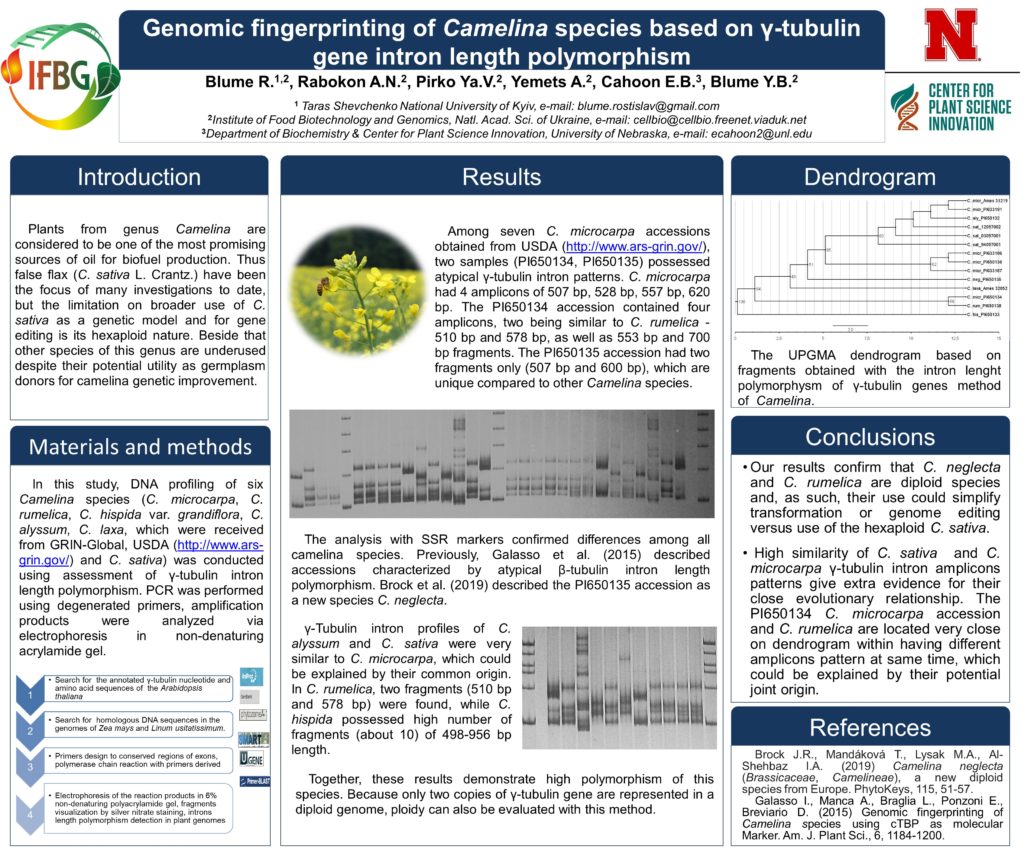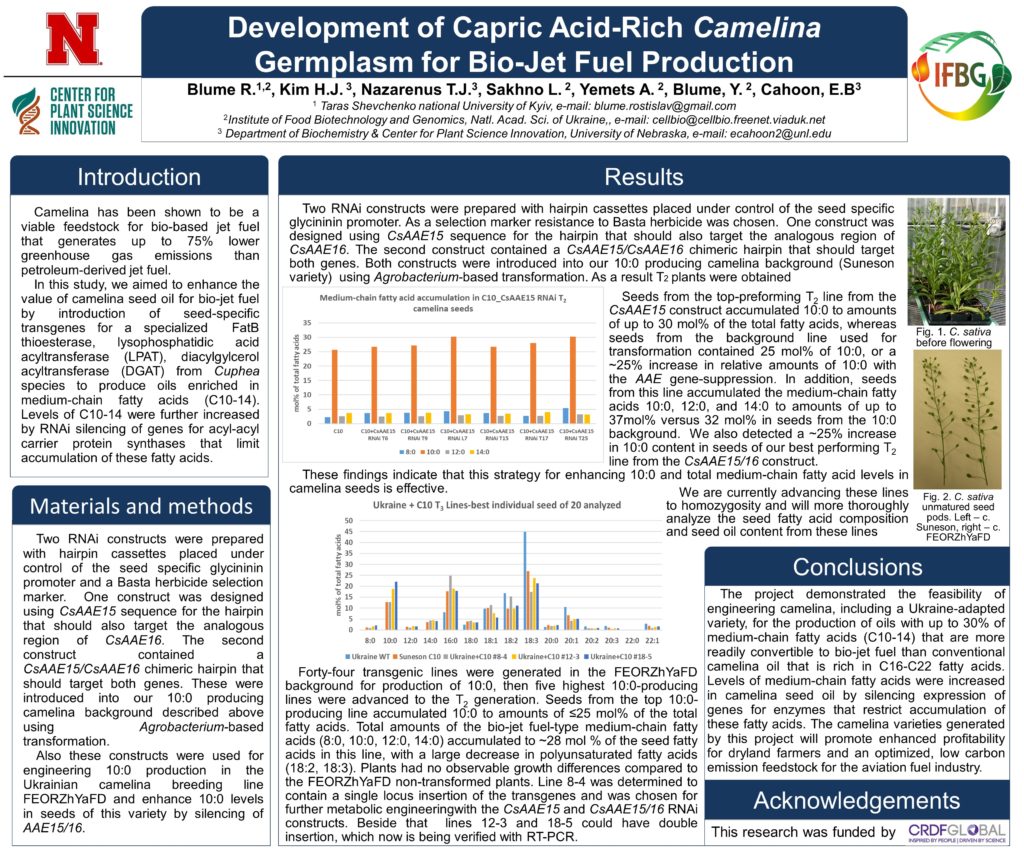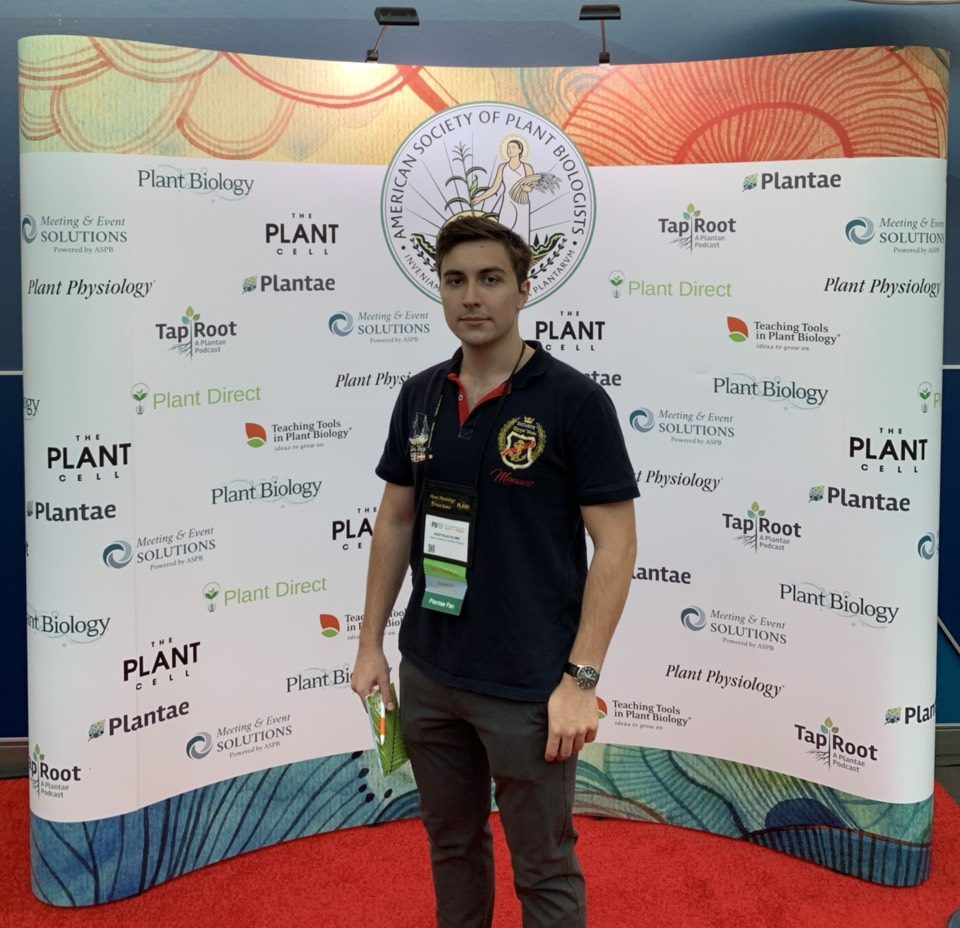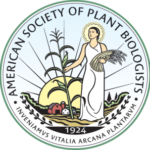 Thanks to the US-Ukraine Foundation, which identified me as one of their Emerging Biotech Leaders and kindly provided me with a travel grant, I obtained the opportunity to attend the Annual Meeting of the American Society of Plant Biology PB19 (August 3-7, 2019) and satellite meeting on Plant Synthetic Biology (August 7-9, 2019), which were both held in San Jose (CA, USA).
Thanks to the US-Ukraine Foundation, which identified me as one of their Emerging Biotech Leaders and kindly provided me with a travel grant, I obtained the opportunity to attend the Annual Meeting of the American Society of Plant Biology PB19 (August 3-7, 2019) and satellite meeting on Plant Synthetic Biology (August 7-9, 2019), which were both held in San Jose (CA, USA).
This event gathered about 1500 scientists from over 40 countries to present their results and discuss the hottest topics in plant biology that are now on the edge of scientific progress. After the official opening, major symposiums and workshops started. The next days were devoted to intense discussion on such important topics in plant biology as cell signaling and signal reception, abiotic stress and disease resistance mechanisms, photosynthesis, the future of food and agriculture. Special attention was paid to implementation of new genomics and biotechnological approaches for solving these problems.
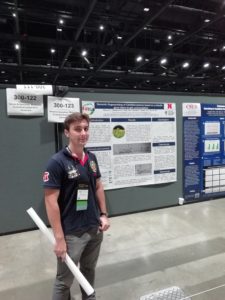
Each day of the PB19 was supplemented with a poster session, where I also presented the results of my research “Genomic fingerprinting of Camelina species using new molecular marker based on γ-tubulin gene intron length polymorphism."
The Plant Synthetic Biology symposium was held straight after and started with a joint session with PB19 meeting on current progress and the future of plant synthetic biology. The main topics of the second conference were dedicated to novel approaches that could allow to ‘rewrite' plant metabolism. The usage of the most progressive biological tools was discussed there: CRISPR/Cas9 technology, directed enzymes evolution and various in silico approaches that could simplify investigations and speed up progress in plant biology. During the poster session I also presented another poster on “Development of capric acid-rich Camelina sativa germplasm for bio-jet fuel production.”
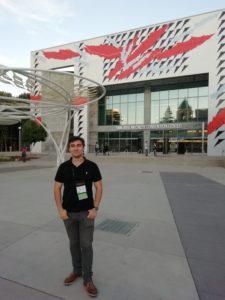
Such conferences with a big scientific audience are very important for young scientists like me since they not only are an opportunity to be introduced to what could develop into a future career, but also represent great chances for networking allowing to find colleagues from the same research field, share ideas, make new contacts for future collaboration and become more familiar with the latest achievements in plant biology.
I am very grateful to the US-Ukraine Foundation for such a wonderful opportunity.
CONFERENCE POSTERS
